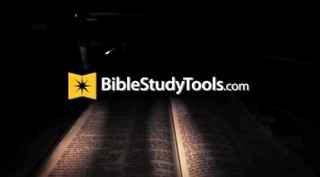
- Recent Translations
- All Translations
Bereshis 37:1
Share
Settings
Bereshis 37:1 Meaning and Commentary
And Jacob dwelt in the land wherein his father was a stranger,
&c.] And this stands opposed unto, and is distinguished from the case and circumstances of Esau and his posterity, expressed in the preceding chapter, who dwelt in the land of their possession, not as strangers and sojourners, as Jacob and his seed, but as lords and proprietors; and so these words may be introduced and read in connection with the former history; "but Jacob dwelt" F1; and this verse would better conclude the preceding chapter than begin a new one. The Targum of Jonathan paraphrases the words, "and Jacob dwelt quietly"; or peaceably, in tranquillity and safety; his brother Esau being gone from him into another country, he remained where his father lived and died, and in the country that by his blessing belonged to him:
in the land of Canaan,
and particularly in Hebron, where Isaac and Abraham before him had dwelt.
F1 (bvyw) "at habitavit", Schmidt.
Bereshis 37:1 In-Context
Videos for Bereshis 37:1
